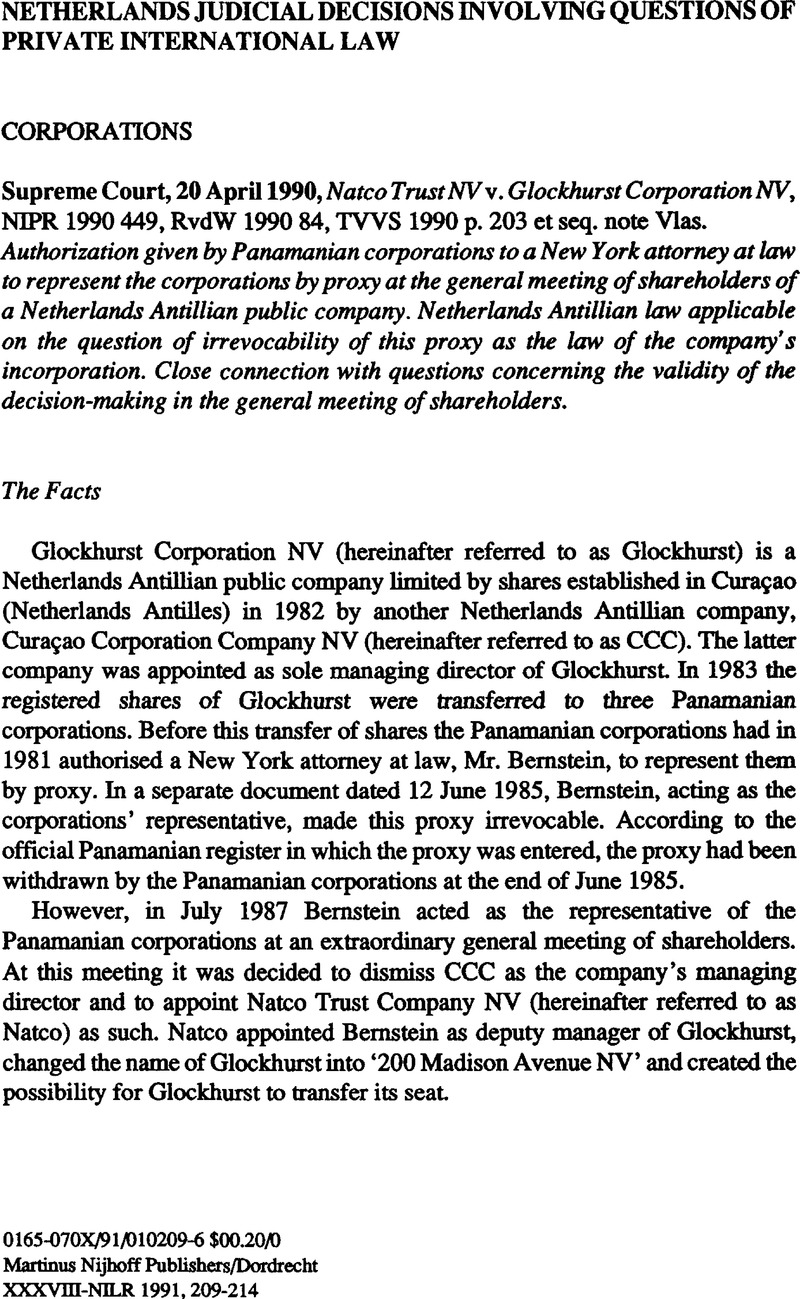No CrossRef data available.
Published online by Cambridge University Press: 21 May 2009

1. An overview of the legal system of the Netherlands Antilles and Aruba is given by Bongenaar, K.E.M., ‘Le pluralisme juridique aux Antilles Néerlandaises’ [Legal Pluralism in the Netherlands Antilles], Netherlands Reports to the Thirteenth International Congress of Comparative Law, Montreal 1990 (1990) p. 1 et seq.Google Scholar
2. See the Act of 20 July 1961, Stb. 1961 No. 212, Cassatieregeling voor de Nederlandse Antillen en Aruba; Veegens, D. J. et al. , Cassatie in burgerlijke zaken [Cassation in civil matters], 3rd. edn. (1989) no. 31Google Scholar.
3. See on this subject also SC 11 November 1988, 37 NILR (1990) p. 83CrossRefGoogle Scholar note Vlas.
4. Art. 117 reads as follows: ‘1. Every shareholder, in person or through his representative by proxy given in writing, is authorized to attend and address the general meeting of shareholders and to execute his voting rights. (…)’. Art. 227 reads the same with respect to private limited companies. An equivalent provision is to be found in Art. 44a of the Code of Commerce of the Netherlands Antilles.
5. The Hague Agency Convention has already been ratified by France and Portugal, so that ratification by the Netherlands as the third ratifying State will lead to its coming into force.
6. See on this subject also Advocate General Strikwerda in bis opinion before the reported decision of the SC, No. 2. 3.
7. The Kingdom of the Netherlands ratified the Convention by the Act of 31 January 1991 (Stb. 1991 No. S3). The deposit of the instrument of ratification took place on 21 June 1991. The Convention is not yet in force far the Netherlands Antilles and Aruba.
8. According to Art. l(2)(e) the rules of the Convention shall not apply to ‘questions governed by the law of companies and other bodies corporate or unincorporate, such as the creation, by registration or otherwise, legal capacity, internal organization or winding up of companies and other bodies corporate or unincorporate and the personal liability of officers and members as such for the obligations of the company or body’. In Art 1 (2)(f) the question is excluded whether, inter alia, an organ is able to bind a company or body corporate or unincorporate, to a third party.